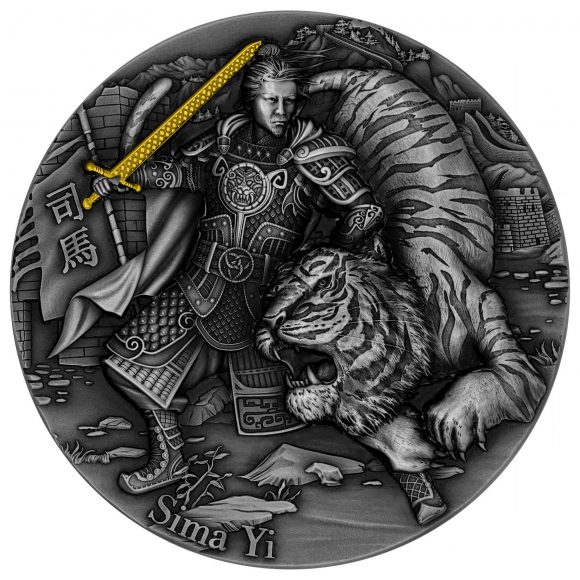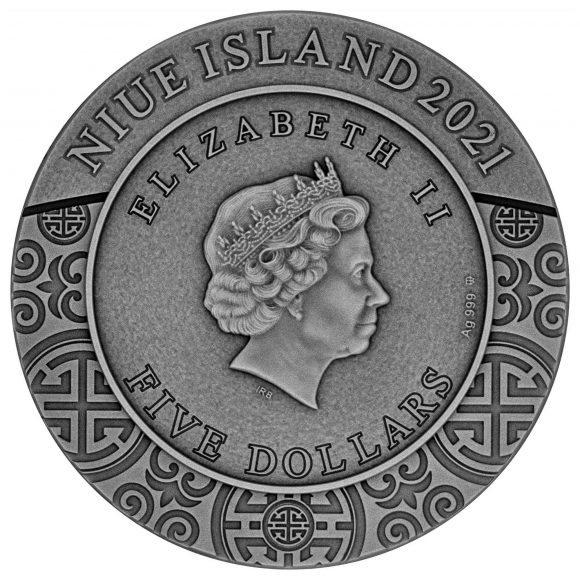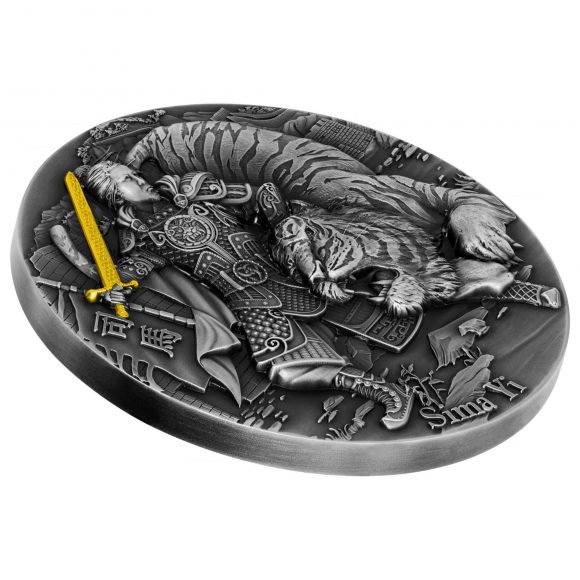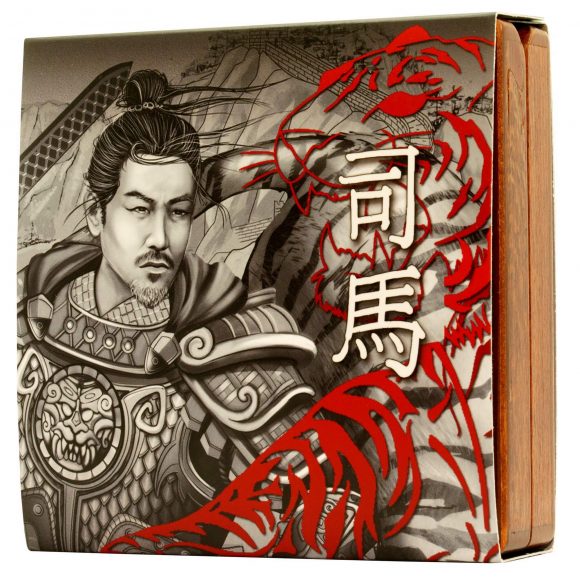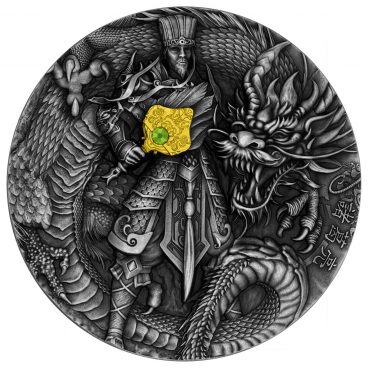Sima Yi (司馬懿) (179 – 7 September 251) was a strategist, military and political officer of Cao Wei during the Three Kingdoms period in China, in the service of Cao Cao, and later Cao Pi, Cao Rui, and Cao Fang. Sima Yi is the second issue in the Famous Chinese Warriors series.
Sima Yi
| Famous Chinese Warriors | |
| Year of issue: | 2021 |
| Issuer country: | Niue |
| Face Value: | 5 Dollars |
| Metal: | Silver |
| Purity: | .999 |
| Weight: | 2 oz |
| Dimensions: | 45 mm |
| Relief: | High relief |
| Finish: | Antiqued |
| Additional: | Gold plated |
| Mintage: | 555 pieces |
Description
Sima Yi, courtesy name Zhongda, was a Chinese military general, politician, and regent of the state of Cao Wei during the Three Kingdoms period of China. He formally began his political career in 208 under the Han dynasty’s Imperial Chancellor Cao Cao, and was quickly promoted to higher office. His success in handling domestic and military affairs such as governance and the promotion of agriculture, serving as an adviser, repelling incursions and invasions led by Shu and Wu forces, speedily defeating Meng Da’s Xincheng Rebellion, and conquering the Gongsun-led Liaodong commandery, garnered him great prestige. He is perhaps best known for defending Wei from a series of invasions that were led by Wei’s rival state Shu between 231 and 234.
In 239, along with another co-regent Cao Shuang, he was made to preside as a regent for the young Cao Fang after the death of latter’s adoptive father, Cao Rui. Although amicable at first, the relationship soon deteriorated in light of Cao Shuang’s corruption, extravagance, and attempts to curtail Sima Yi’s political influence. In 249, after carefully planning and building up support, Sima Yi ousted Cao Shuang from power in a coup d’état and had him and his associates executed.
After the coup d’état, Sima Yi served as the de facto primary authority in Wei, although in 251 he faced some opposition from Wang Ling’s rebellion, with which he swiftly dealt. Sima Yi died on 7 September 251, at the age of 71 or 72, and was succeeded by his eldest son Sima Shi.
For the remainder of Wei’s history, state power was increasingly vested in the Sima clan, which led to the establishment of the Jin dynasty, which was founded by Sima Yi’s grandson Sima Yan in 266. After Sima Yan became emperor, he honoured his grandfather with the posthumous title Emperor Xuan of Jin and the temple name Gaozu.






Other products of Famous Chinese Warriors





Check your email for the confirmation message.




